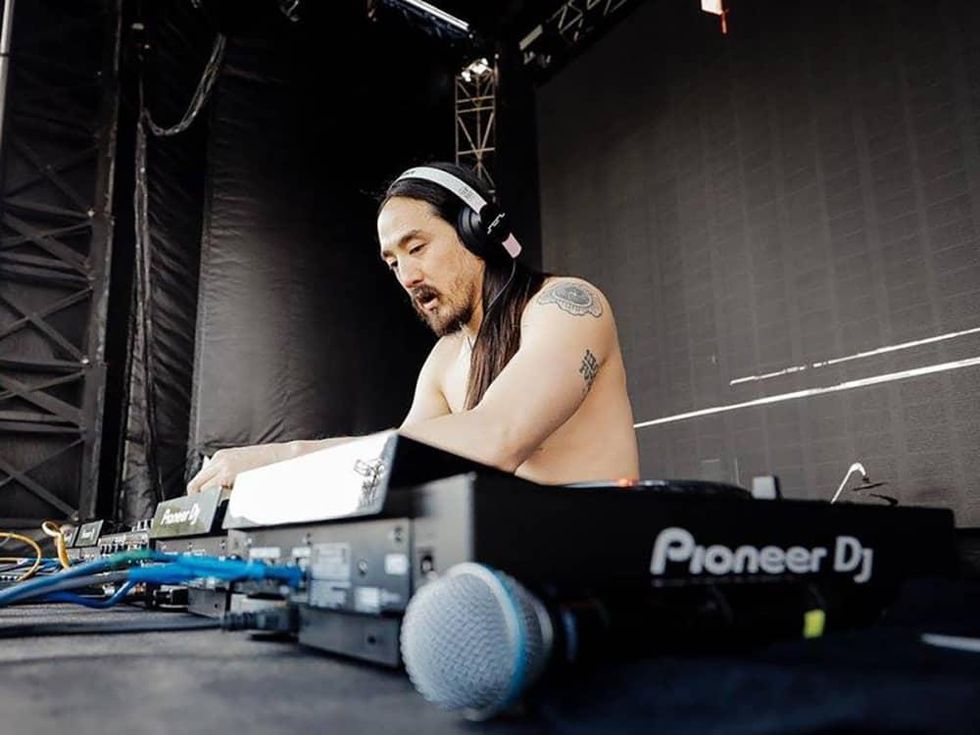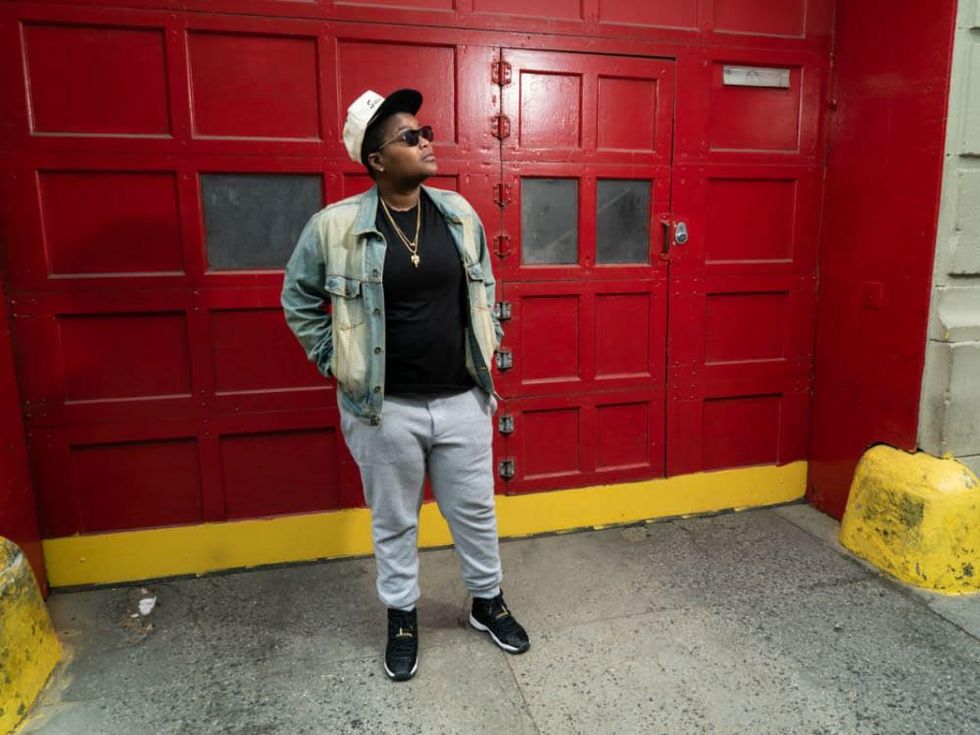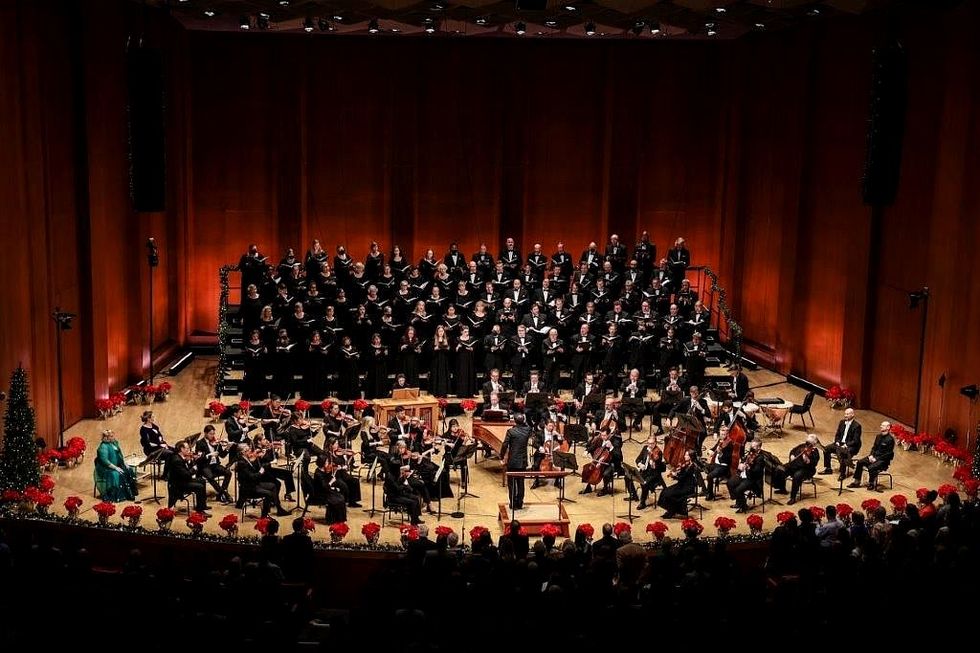The CultureMap Interview
Inside the Houston Cinema Arts Festival: Burning questions that will make yourmovie time magic
 Love, Marilyn kicks off this year's festival.The Cultural Expose
Love, Marilyn kicks off this year's festival.The Cultural Expose Richard Herskowitz at last year's red carpet event for Houston Cinema ArtsFestivalPhoto by Eric Hester
Richard Herskowitz at last year's red carpet event for Houston Cinema ArtsFestivalPhoto by Eric Hester Scene from The Simple LifeFestival.sdaff.org
Scene from The Simple LifeFestival.sdaff.org Lynn Wyatt is to moderate Diana Vreeland: The Eye Has to Travel, right on thecusp of Fashion Houston (another new partner).Photo courtesy of Diane Vreeland: The Eye Has to Travel
Lynn Wyatt is to moderate Diana Vreeland: The Eye Has to Travel, right on thecusp of Fashion Houston (another new partner).Photo courtesy of Diane Vreeland: The Eye Has to Travel Lincoln Mayorga's short piano recital that will accompany his film, A SuitcaseFull of Chocolate: The Life of Pianist Sofia Cosma, is a direct result of thesuccess of Philippe Quint's violin performance after Downtown Express last year.A Suitecase Full of Chocolate/Facebook
Lincoln Mayorga's short piano recital that will accompany his film, A SuitcaseFull of Chocolate: The Life of Pianist Sofia Cosma, is a direct result of thesuccess of Philippe Quint's violin performance after Downtown Express last year.A Suitecase Full of Chocolate/Facebook
In recent days, Houston Cinema Arts Festival artistic director Richard Herskowitz has been revving up to warp speed, zipping hither and yon as he attends to this, that and a hundred other details while overseeing the fourth annual edition of his ambitious and all-encompassing celebration of film.
Because he’s been a man on the move — and a man with a mission — it’s been hard to pin him down for anything like a lengthy discussion of HCAF 2012, which kicks off Wednesday night with its official opening night screening of Liz Garbus’ Love, Marilyn.
"The thing people love about festivals is that there's so much going on at once. The thing people dislike about festivals is that there's so much going on at once."
But as we all know: In this Internet-interconnected day and age, you can run, but you can’t hide. We caught up with Herskowitz through the modern miracle of email, and he answered the five burning question about the five-day movie event.
CultureMap: What lessons have you learned about Houston audiences during your previous three festivals here?
Richard Herskowitz: My previous festival, the Virginia Film Festival, was the biggest event of the year in its town, Charlottesville. Houston is, obviously, a much bigger place, and there's a lot more going on competing for people's attention. I need to partner with groups with solid ties to particular audiences to help get the word out.
Also, I have seen that people really like live performances with films, and animation and fashion films strike a chord.
Finally, oddly enough, people here don't seem to mind at all if a celebrity like Ethan Hawke or Robert Redford is in the room!
CM: How did you put those lessons into effect while planning Houston Cinema Arts Festival Four?
RH: I consult all year with a growing pool of advisers and collaborators, like Mary Magsamen at Aurora Picture Show, Marian Luntz at the MFAH, Alfred Cervantes of the Houston Film Commission, writer Nancy Wozny, and many others.
Most of the programs are collaborative presentations, and I expand our partnerships each year. This year, Asia Society and the Cynthia Woods Mitchell Center are new partners on SuperEverything*, the Blaffer Museum is on United in Anger, and Project Row Houses is a new partner on the installation Question Bridge.
Lincoln Mayorga's short piano recital that will accompany his film, A Suitcase Full of Chocolate: The Life of Pianist Sofia Cosma, is a direct result of the success of Philippe Quint's violin performance after Downtown Express last year. Ending the festival with a fashion film (Diana Vreeland: The Eye Has to Travel), moderated by Lynn Wyatt, no less, and on the cusp of Fashion Houston (another new partner), will surprise me if it's not a home run.
CM: What are some of the low-profile sleepers on the schedule we should look out for?
RH: Thank you for this question! The shows in our Cinema 16 screening room are the most adventurous films in the schedule, and, at many of them, you'll get to hear the whirring of 16mm film projectors, an increasingly rare pleasure. Included in the price of admission are six amazing video installations, our Cinema on the Verge exhibition, on the first floor of 4411 Montrose.
A Simple Life is almost completely unknown here, although it swept the Hong Kong Academy Awards and totally deserved distribution. It has an incredibly moving story about a man's renewed relationship with his childhood nanny at the end of her life and fantastic performances by Andy Lau and Deanie Ip.
In fact, I think the Asian programming is especially strong this year, and Tatsumi, an animated feature about Japan's greatest comic artist (not for kids), and Kanzeon, about Japanese Buddhism and sound, are going to make the audiences who discover them very, very happy.
Finally, Eve Sussman is a major figure in the art world but less well-known to film audiences; her whiteonwhite:algorithmicnoir is an endless film that, on Friday night at the Aurora Picture Show, Sussman will interrupt to discuss. It reinvents narrative filmmaking and will blow people's minds.
CM: Who was Shirley Clarke and why should festival goers want to know more about her and her films?
RH: Shirley Clarke, along with John Cassavetes, pioneered the American independent feature, which later gave us Linklater, Jarmusch, Tarantino, etc. She was the greatest experimenter of them all, and she was fearless. Her film The Connection, which we're showing, satirized the trendy cinéma vérité of the moment, brilliantly reimagined a Living Theater production in cinematic terms, and had a great jazz score.
She had a thing for jazz, and when she made Orentte Coleman: Made in America about the Texas-born Ornette Coleman, her filmmaking just cuts loose in the most joyous and imaginative way.
Not to be missed is the presentation Where's Shirley? by the archivist-distributors, Dennis Doros and Amy Heller, who have been preserving her work.
CM: There’s a lot going on — something for everyone — throughout the festival. But 7 to 7:30 pm Friday looks like a major traffic jam. Any concern that you might have scheduled too much of a good thing at the same time?
RH: The thing people love about festivals is that there's so much going on at once. The thing people dislike about festivals is that there's so much going on at once. I think festivals are thriving and serving cinema with this concentrated explosion — it's the only way for independent films to counter the massive hype around a single commercial film release like The Avengers or Skyfall.
All that being said, I think I overdid it on Friday night! If it's any consolation, two of the five films playing then can be seen at other times, and two others will be released in Houston theaters soon.





